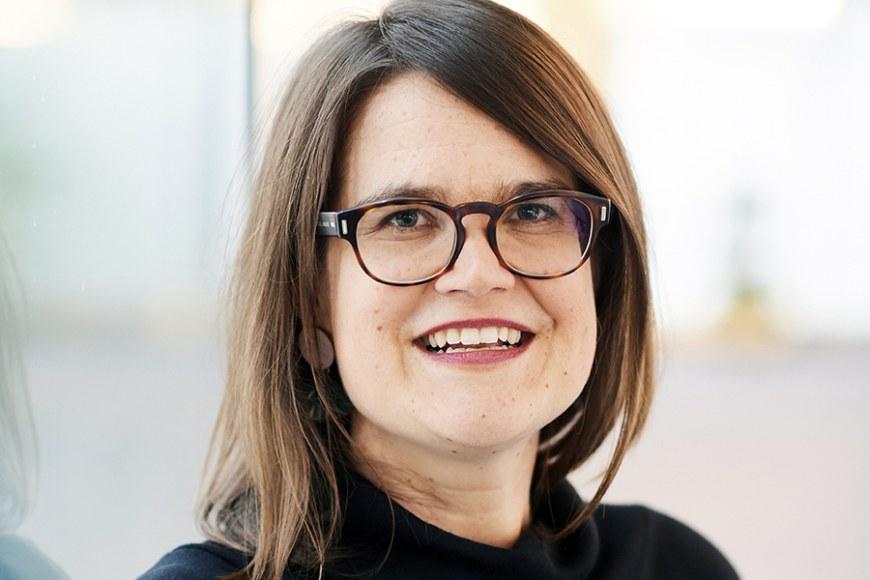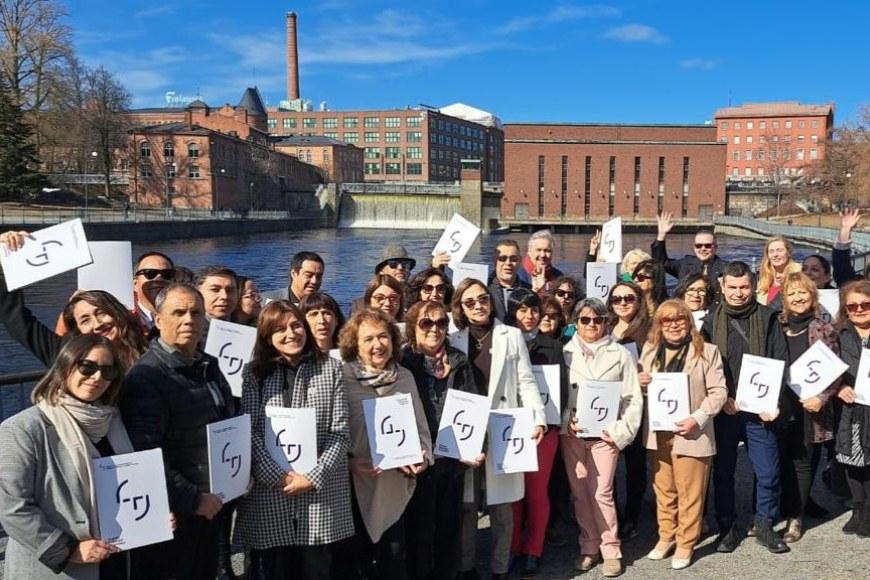Equality issues divide the European Parliament

“With the rise of the radical right, populism has become more legitimate,” says Johanna Kantola, professor of gender studies at Tampere University in Finland.
A study by Johanna Kantola and Emanuela Lombardo (Complutense University, Madrid) shows that in addition to traditional indirect opposition to gender equality in the European Parliament direct opposition has recently increased.
Kantola and Lombardo analysed the opposition strategies radical right populists adopted in the European Parliament (EP) plenaries against gender equality in the 8th legislature (2014–2019). The study is part of the European Research Council (ERC) funded EUGenDem project which Kantola leads.
Contradictory trajectories
The EP is often presented as the most gender equal of the EU institutions, and women’s representation has increased steadily to 40% in 2019. However, there have also been setbacks.
Elena Zacharenko, a doctoral researcher in gender studies at Tampere University, authored a report commissioned by the Finnish MEP and EP’s Vice-President Heidi Hautala (Greens) on networks that oppose gender equality in Europe. The report shows that the number of MEPs who are against gender equality and women’s rights has already grown to about 30% – to 210 of the 705 seats.
According to Kantola, the contradictory trajectories reveal the centrality of gender and equality in current political struggles. Both the supporters and opposers of gender equality are more visible than before.
“It is no coincidence that Ursula von der Leyen was appointed President of the European Commission because there was political commitment to having a woman in that post. On the other hand, opposing gender equality and minorities is central to radical right populists, and these elements can be seen in the election campaigns and the everyday workings of the EP,” Kantola says.
The opposite trends reveal political polarisation and the position of gender equality in this polarisation.
However, the impact of populist political groups on decisions that concern equality is limited because even though they speak out in plenary debates, they have not been found to have a significant effect on, for example, committee work.
Uglier rhetoric than in the Finnish Parliament
At the European Parliament, the number of opponents of gender equality has not increased in one big leap. Instead, it has been a gradual process that has lasted for several legislative terms in which the issue of gender equality has been increasingly highlighted with the growth of right-wing populism.
Right-wing populists have introduced the notion of ‘gender ideology’, which frames gender equality as a dangerous and elitist ideology.
“The populist groups are trying to create the impression that there is a gender ideology represented by the European Union and people who defend equality. This involves menacing visions, escalation, othering, ridicule, and intentional misunderstanding,” Kantola lists.
In some public statements, Silvia Modig, a Finnish MEP in the GUE/NGL group, has said that the language used in the EP is much uglier than in the Parliament of Finland to the extent that the two cannot even be compared.
Kantola has not analysed how Finnish MEPs participate in the gender equality debates of the EP. In the research data, different countries or groups of countries do not stand out clearly in opposition to gender equality.
“Of course, some countries, such as Poland, are conspicuous in this respect, but those views also applied to the British UKIP or the French National Rally i.e. to countries with right-wing populist parties,” Kantola points out.
Indirect opposition has become visible
The main result of Kantola and Lombardo’s study is that indirect opposition to equality has become direct and open.
“Most forms of opposition to equality are very direct and involve racist and sexist language. Indirect resistance can also be just as effective because it is used by a wider group of people,” Kantola says.
MEPs who are against what they call gender ideology also oppose the concept of gender. They try to demonstrate that being a man and a woman are natural things and that socially constructed gender does not exist.
“They think that women and men have natural roles which include having a regular heterosexual nuclear family, and this should not be questioned. They want to delete the word ‘gender’ from parliamentary reports and resolutions and replace it with ‘men and women’,” Kantola says.
The largest group is divided despite Orbán’s departure
Opponents of gender equality can be found in the populist groups of the European Parliament, which currently are the Identity and Democracy (ID) group and European Conservatives and Reformists (ECR).
In addition to them, many people have conservative opinions about gender also in other political groups, most notably the European People’s Party, which is the largest group of the EP that includes the National Coalition Party MEPs from Finland.
“The EPP has been more divided because it does not have an easy relationship with gender equality as the group consists of conservative parties from the member states,” Kantola says.
Some relief was brought to the group by the resignation of the Hungarian Fidesz Party because the EPP changed the rules of its group. Fidesz is chaired by Prime Minister Viktor Orbán. The EPP Group has also wanted to uphold the values and fundamental rights of the European Union in which it is supported by the Finnish MEPs.
Kantola follows with interest whether the departure of Fidesz will bring real changes to EPP’s policy.
“In terms of power, EPP continues to be the largest group in the EP, but it can now represent European values more credibly as a party that blatantly violates those values is no longer a member. However, EPP still has its work cut out to defend gender equality. The resignation of Fidesz is not in itself enough to make this an easy question for the EPP,” Kantola explains.
Difficulties abound as the group is an umbrella for a wide range of views. Individual EPP MEPs are strongly in favour of equality, but there are also conservative MEPs who are illiberal about women’s rights.
Burqa ban is a tough question
Gender equality often intersects with immigration and identity. In a recent referendum, Muslim women’s burqa, which covers the head completely, was banned in Switzerland, a non-EU country.
“There are many headscarf bans in European countries, which have been talked about for more than ten years,” Kantola points out.
She is not an expert on the Swiss situation but says on the general level that this is a prime example of how Western countries juxtapose their own conception of equality with those of other cultures, religions, traditions, or customs and contest them.
“From the perspective of gender studies, the interesting question is whose voices are heard. Can the voices of the women wearing the scarves be heard? And who are the ones pushing for the bans and why are they doing it? The bans are not unequivocal from the equality perspective,” Kantola says.
What would you vote for in a situation like that?
“I would never vote for a headscarf ban, but the Swiss took a stand on the burqa. Bans may deteriorate the position of those who are already vulnerable. My decision would also depend on the political situation, the societal context, and the political struggle around who is promoting the ban and why,” Kantola answers.
Text: Heikki Laurinolli
Photograph: Francois de Ribaucourt





